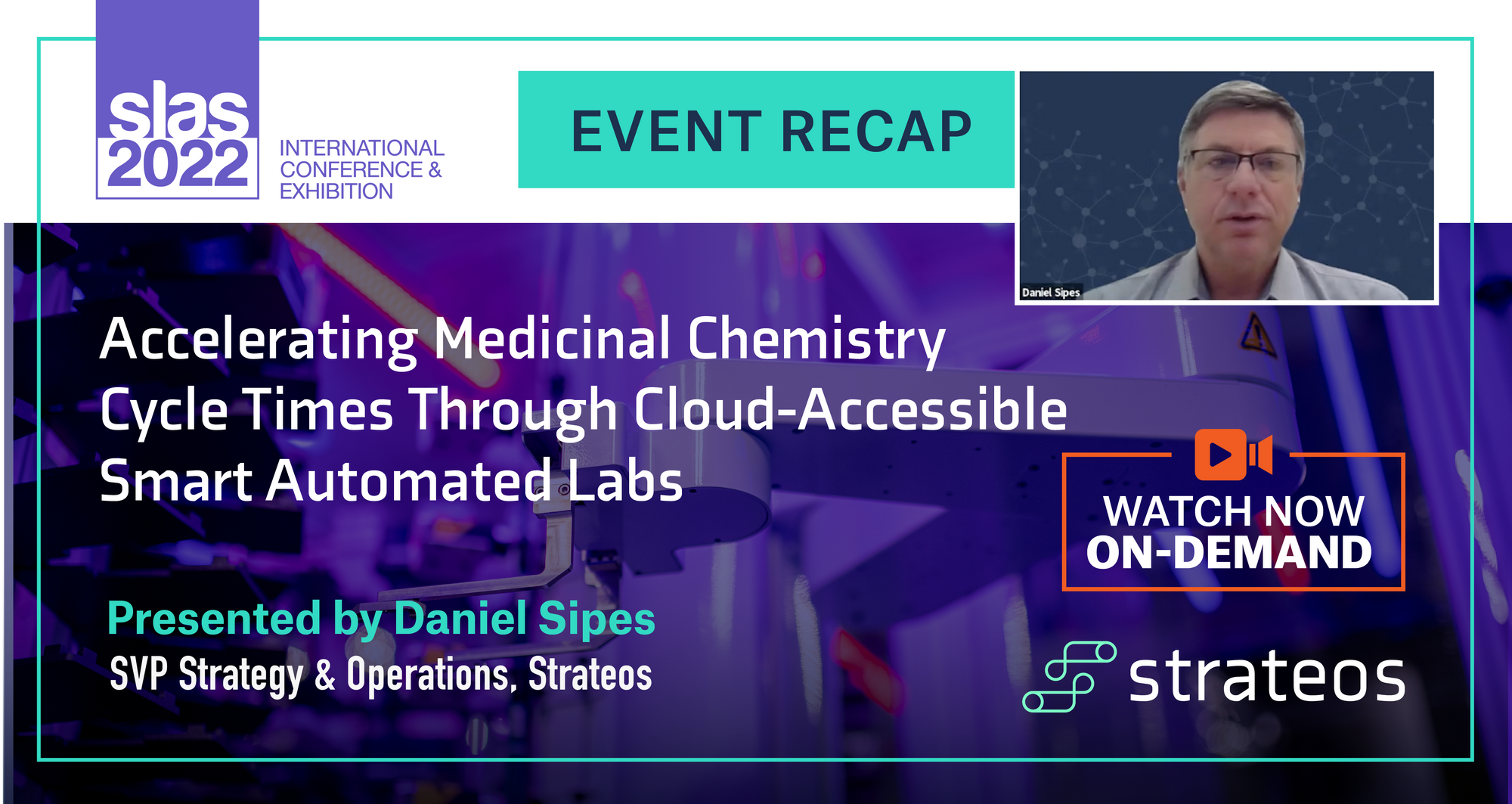Highlights from SLAS 2022 Conference - Event Recap
The recent SLAS 2022 conference showcased some great presentations and panel discussions on the transformative potential of laboratory automation and AI-driven machine learning. Read our highlights from the event and watch our on-demand presentations.

The recent SLAS 2022 conference showcased some great presentations and panel discussions on the transformative potential of laboratory automation and AI-driven machine learning. Strateos’ SVP of Strategy & Operations, Daniel Sipes, echoed this sentiment during his presentation on how automated labs are accelerating medicinal chemistry (MedChem) cycles for drug discovery. Additionally, Strateos’ Senior Director of R&D Strategy, Daniel Rines, took part in a panel discussion with other thought leaders in the field on the state of AI and predictions for the future. Here are some highlights from SLAS 2022.
The focus of this year’s SLAS 2022 was to accelerate life sciences research through the adoption and integration of transformative lab automation technologies. The caliber of participants, presentations highlighting innovative technologies and thought-provoking panel discussions that occurred during the conference did not disappoint.
Strateos’ SVP of Strategy and Operations, Daniel Sipes, gave a presentation outlining how the challenges in conventional design, make, test and analyze (DMTA) cycles in small molecule drug discovery workflows can be overcome with automated end-to-end solutions from synthesis to biological testing. Daniel outlined the key success metrics of Strateos’ closed loop DMTA modules from over a year in commercial production mode, summarized below:
- Closed loop DMTA modules enable the synthesis, purification, and testing of multiple compounds within 3-5 days
- Seamless transition from idea to experiment execution to data, reducing researchers’ hands-on time by 90%
- Automation enables high throughput screening of over 1M molecules in as little as two weeks
“By speeding the DTMA loop, we can greatly accelerate the idea-to-data workflow in the early drug discovery process. The model quality data generated is well-suited to support AI and machine learning tools.” -Daniel Sipes, SVP of Strategy & Operations, Strateos
The field is at an exciting juncture, poised to re-shape and accelerate small molecule drug discovery workflows and Strateos’ SmartLab platform is at the forefront of the revolution.
Additionally, Strateos also participated in a panel discussion on the topic of AI in Labs: Improving Research Products and a Look to the Future with other thought leaders in the field including those from Carnegie Mellon University, BioBright, Emerald Cloud Lab, and HighRes Biosolutions. The consensus among the panel is that life science research is evolving from a process-driven approach to a data-driven one. Barriers to entry for contemporary labs to incorporating AI include a talent shortage of individuals with dual expertise in biological processes and machine learning. Legacy systems and digital infrastructure that cannot handle sophisticated AI software and lack interoperability also pose challenges. Looking ahead to the future, the panelists cite investment in training researchers to be fluent in machine learning in the context of scientific disciplines, improving data quality and democratizing access to technology and subject matter experts as being integral to realizing the full potential of AI.
“Increased collaboration and connection will be needed to implement AI in labs. Bringing together groups with specialized expertise and integrating robotic automation will tie together intelligent design and data generation with downstream analysis and modeling” - Daniel Rines, PhD, Senior Director of R&D Strategy, Strateos
To view our presentation and/or the AI panel discussion, please click the videos below:
